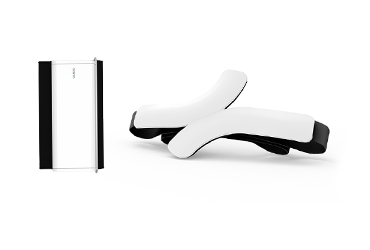Qardio are helping to raise awareness about heart rhythm abnormalities, also known as arrhythmias such as atrial fibrillation. It is important to understand the difference between a normal and an abnormal heart rhythm, how to detect an abnormality, and the significance of detecting it early on.
What is an abnormal heart rhythm?
Your heart is a magnificent piece of engineering. Each day, it beats over 100,000 times, and pumps around 7000 litres of blood around the body. Heartbeats are controlled by electrical impulses, which pass through the heart. Therefore, a problem with the heart’s electrical system can cause the heart to beat abnormally.
Are there different types of heart abnormalities?
There are many different types of heart rhythm abnormalities such as bradycardia, tachycardia, atrial fibrillation, and ventricular fibrillation to name a few, but broadly they relate to whether the heart beats too fast, too slow, or in an irregular pattern.
How do I know I have arrhythmia?
Early detection of heart rhythm abnormalities is crucial, as if left untreated they can lead to further health complications. One of the most serious complications is sudden cardiac arrest. This occurs when the heart suddenly stops beating and cuts off the supply of blood to the brain, kidneys, liver, and lungs. To see if you are one of the many living with an arrhythmia, you would need to undergo an ECG/EKG test.
Is an arrhythmia dangerous?
To picture the seriousness of sudden cardiac arrests, just think about what happens when there’s an electrical fault in your home. You should see that in a split-second all of the lights suddenly go out, and your home is left in darkness. Your home remains in darkness until you are able to restore the power.
Surviving a sudden cardiac arrest depends upon how quickly the blood supply is restored to the body’s vital organs. According to the American Heart Association, only 1 in 10 people survive an out of hospital cardiac arrest.
Detecting an abnormal heart rhythm early could be the difference between living a healthy life, and experiencing the dangerous complications. Therefore, if you suspect that you may have an abnormal heart rhythm, you should visit your family doctor without delay.
What are the symptoms and an arrhythmia?
Symptoms of an abnormal heart rhythm include general feelings of unwellness such as dizziness, faintness, and shortness of breath, and the feeling of your heart beating differently (heart palpitations). However, many people with heart rhythm abnormalities have no symptoms at all.
Regular monitoring of heart rhythm is therefore essential for tracking heart health, and ensuring any abnormalities are detected as soon as possible.
At Qardio, it is our mission to put you in charge of your own heart health, and that’s why with QardioArm you can monitor your heart rhythm daily. Not only does QardioArm give you accurate, clinically valid information about your heart rate, but it is also designed to automatically detect irregular heartbeats. QardioCore gives you the power of a medical grade ECG/EKG monitor with the convenience of home monitoring on your smartphone. See how Qardio devices help you keep healthy the easy way.
Remember, a normal heart beats at a rate of 60 to 100 times per minute, speeding up with exercise, and slowing back down again with rest. An abnormal heart rhythm refers to a heart that beats too fast, too slow, or in an irregular pattern. This World Heart Rhythm Week, we ask that you join in the efforts to raise awareness about normal and abnormal heart rhythms by sharing this information with your friends and loved ones.
Sources:
American Heart Association
Post contributed by Victoria Allan, a data scientist with a huge passion for heart health. Victoria researches the latest evidence on heart disease prevention, and keeps her own heart in good health by being active everyday.




